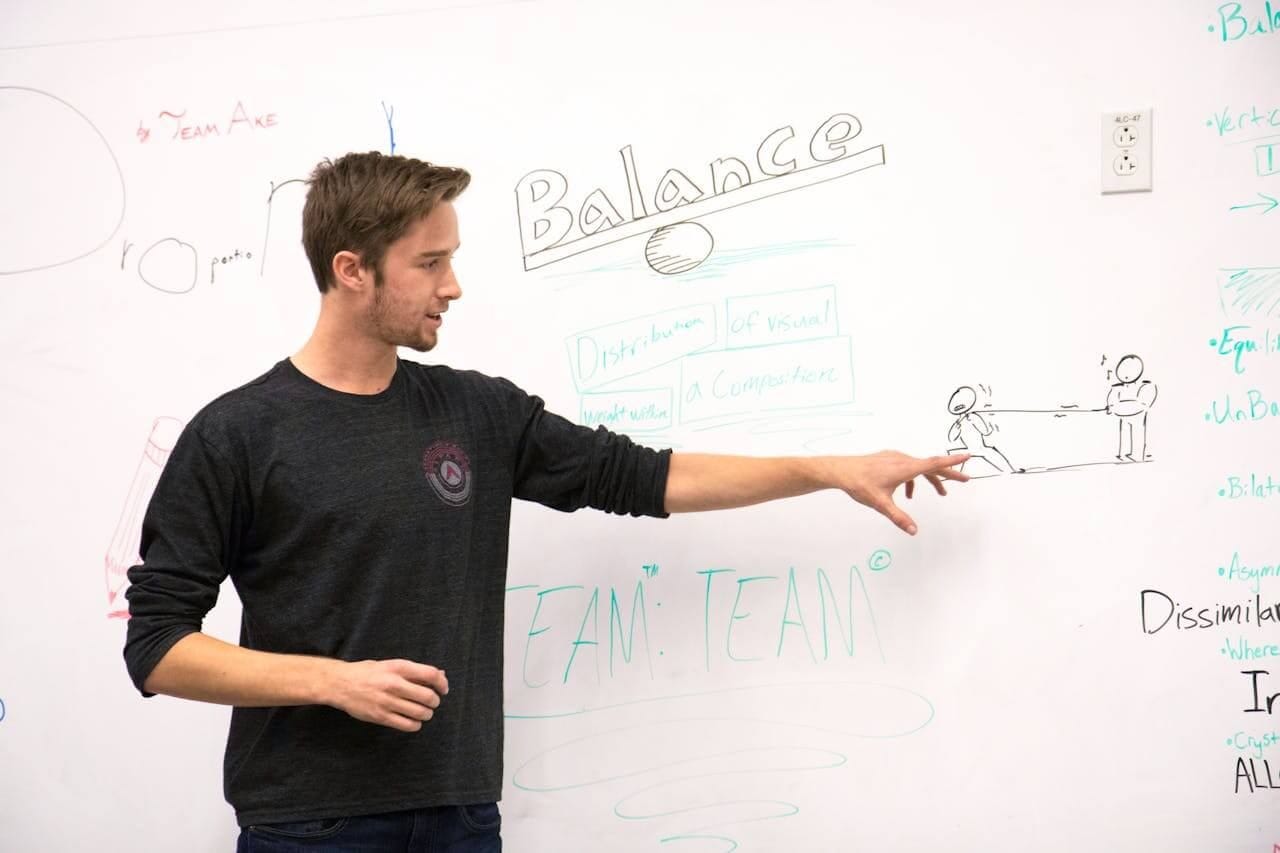Access thousands of exclusive scholarships
for free
Confused with the concept of a capstone project? As you approach your senior year, you might be hearing about this culmination project—whether a research endeavor, final paper, application, or portfolio— this academic endeavor aims to showcase the depth of your learning throughout your college years and prepares you for the professional world.
In this blog post, I will explore what it means, how to prepare for it, and how you can bring this academic achievement to life. I'll guide you through this process, ensuring you have the support and resources you need. With the right guidance and understanding, you can transform this challenging task into an opportunity for growth and real-world application.
Start applying for school scholarships now! There are thousands of applications open for the upcoming school year!

Importance of Capstone Courses
Capstone courses are part of university curricula and are strategically designed to prepare students for a seamless transition from academia to the workforce. They may include research endeavors and theses. However, each has a distinct focus and purpose.
These projects often highlight practical applications and skill enrichment, making them more aligned with professional practice (often done as a group project).
On the other hand, research and theses contribute to the academic body of knowledge, delving deeper into theoretical aspects. Bridging this knowledge gap is essential to empowering students with the understanding needed to make informed decisions about their final-year assessments.
Characteristics of Capstone Projects
In a broader context, a capstone project is designed to integrate theoretical knowledge with practical application. It provides a platform to reflect on academic journeys, apply acquired knowledge to real-world scenarios, and develop problem-solving skills. By addressing tangible challenges, learners enhance their readiness for the professional world.
The benefits of capstone projects extend beyond academic prowess. They empower students to navigate complex, work-related issues, through practical experience and fostering a deeper understanding on a particular subject.
This synthesis of knowledge and practical application enriches the graduate student's educational experience and typically involves graduates with a skill set essential for success in their higher education.

Capstone Project vs. Capstone Course
Although the terms "capstone project" and "capstone course" are often used interchangeably, it's necessary to understand their differences:
A capstone project is an independent assignment that encapsulates students' academic learning and demonstrates their proficiency in a specific discipline or field.
The focus is on individual research, problem-solving, or creative endeavors, providing a medium to demonstrate the knowledge acquired as students finish their studies. A capstone project is part of a course (think of it as a final assignment).
A capstone course contains a broader coursework and educational experience. It is an entire course (like any other) in which students incorporate and apply their knowledge gained throughout a program. It often requires students to collaborate on projects, engage in discussions, and participate in various activities. It can take longer to complete and varies depending on the institution.

Examples Across Various Majors
Students across different degree programs engage in multifaceted capstone experiences at the end of their college careers. These experiences can vary widely, from individual research to collaborative group endeavors, reflecting the essence of their academic achievements.
For example, in fields such as political science, students may delve into a senior thesis, conducting extensive research and showcasing their critical thinking skills.
Alternatively, within literature courses, the last capstone course may involve a comprehensive literature review, illustrating the culmination of knowledge and skills acquired throughout the course of the degree program.
Get Matched to Thousands of Scholarships
Create your Bold.org profile to access thousands of exclusive scholarships, available only on Bold.org.
Create Free ProfileMany capstone courses extend beyond conventional research papers, requiring you to work on a final project addressing a real-world problem. This collaborative effort and practical method, which can be conducted in small groups, emphasizes teamwork, a significant amount of research, and a strong work ethic (fundamental skills that prepare students for the workplace).
In addition to meeting the degree program and requirements, these capstone experiences often involve a final exhibition, allowing students to present and demonstrate their problem statement to professors, other students, peers, and sometimes even external stakeholders.
A capstone course experience serves as a bridge to graduate degrees or even doctorates, honing research capabilities that are essential for success and develop the necessary skills for potential employers.

Capstone Project Process
As Jolanta Burke and Majella Dempsey highlight in their Practical Guide for Students Book, commencing a capstone project is like constructing a house:
Firstly, you must establish solid foundations, much like a house, ensuring reliability. Then, continue learning and enhancing your skills to build it. Once armed with the necessary skills and information, the next step is to decide on the materials, devise a plan of action, and follow through until the house—your project—is complete and ready for use.
Planning
Just as a house requires a robust foundation, a capstone project initiates with meticulous planning. This phase encompasses defining content, goals, and methodologies, ensuring the project demonstrates most capstone courses.
For instance, if your project revolves around human-centered design, identify a problem, such as a shortage of shelters in a city, and conduct research. Then, the person and approach to solving this problem should be determined, perhaps by studying the owner of an existing shelter and identifying gaps in current approaches.
Research
While delving into extensive research, it's crucial for students to hone academic capabilities by studying other courses and examining what has already been done about the specific problem. Seeking input from people, professors, and TAs are invaluable. Once enough material, like a literature review or interviews, is gathered, present it to your professor for feedback before progressing.
Pre-Execution
Jus like choosing construction materials for a house, students must decide on materials and formulate a detailed action plan, meeting degree or course requirements. This phase demands careful consideration of methodologies and strategies, emphasizing material determination—whether it's an app, a history psychology project, or any other course. Craft a structured plan and present it as a proposal before delving deeper into the subject.
Execution
The final stage involves executing the plan and completing the project, demonstrating the capstone experience. The research project needs to be prepared for use, showcasing the culmination of efforts.
Presentation
The presentation serves as the grand reveal of the completed project. A well-structured project and a compelling pitch, typically required, is essential to demonstrate its readiness for use.
This approach ensures a seamless transition from planning to execution, essential for success in capstone courses and the culmination of their academic journey.

Benefits for Students
The preparatory nature of these projects makes students discover what they enjoy the most, what comes easily, and the potential to find areas of improvement. The benefits are crucial for student' personal and professional development, providing a real connection between academic knowledge and real-world application.
Gaining Skills and Experiences
Capstone projects showcase the skills and experiences accumulated throughout a student's educational journey. From research prowess to critical thinking and effective communication, the project culminates in these proficiencies, bringing them to the student's forefront.
Practical Transition to the Next Phase
Capstone projects are vital in preparing students to transition to the professional world or advance in academic pursuits. It's a practical initiation into college career, familiarizing students with the challenges and responsibilities they'll encounter in their future careers or advanced degrees at other schools.
Initiation of Work or Advanced Studies
Working on a capstone project program allows students to navigate the complexities they'll encounter in their chosen field. This experiential learning program equips them with valuable insights and the confidence and adaptability required to transition to the professional world or pursue advanced degrees.
Holistic Development for Future Success
Capstone projects contribute significantly to students' and major programs' holistic development, ensuring they are academically qualified and possess the practical skills demanded by prospective employers for their future endeavors.

Challenges and Tips
Here are some potential burdens and some capstone journey strategies that have helped me throughout my projects during school.
Choosing a Subject:
- Challenge: Defining the size of your capstone project can be daunting. I recommend balancing ambition with feasibility. For example, if you are trying to help dog shelters, maybe focus on how to prevent owners from abandoning them by educating dog owners. In the case of a more research-based project, look at the literature review of your research focus and build upon what has already been investigated.
- Strategy: Begin with a clear project scope and revisit the risks regularly. Prioritize key objectives to avoid complicating your project, and focus on a single issue.
Time Management:
- Challenge: Capstone projects often overlap with other academic commitments. Time management becomes paramount.
- Strategy: Create a detailed timeline, allocating specific tasks to manageable time frames. Regularly reassess and adjust as needed.
Research Roadblocks:
- Challenge: Conducting extensive research may lead to information overload or difficulty finding relevant sources.
- Strategy: Define research questions early. What is the project doing? For whom? In what builds upon? Utilize academic databases and seek guidance from mentors for targeted resource discovery.
Team Dynamics (if applicable):
- Challenge: Group projects may need help coordinating schedules, differing work styles, or conflicting ideas.
- Strategy: Establish clear communication channels, set expectations from the beginning, and address conflicts promptly.

Frequently Asked Questions About Capstone in University
What exactly is a capstone project?
A capstone project is a culmination endeavor in your last year of college. This final assignment showcases the knowledge you acquired throughout your college years. It's a bridge between academia and the professional world, demonstrating the complete scope of your learning.
How do capstone courses differ from capstone projects?
A capstone project is an independent culminating assignment reflecting academic individual proficiency. On the other hand, a capstone course is an entire academic course that may involve collaborative projects, discussions, diverse activities, and presentations.
What are the benefits and challenges of capstone projects?
Capstone projects offer transformative experiences, unveiling skills and experiences gained through academic years. The benefits include skill refinement, self-discovery, and a practical transition to the professional realm.
However, challenges such as choosing a subject, time management, research roadblocks, and team dynamics may arise. Strategies like clear project scoping, time management, focused research questions, and effective team communication can help overcome these challenges.
Start paying for school smarter. Register at Bold.org to discover simple scholarships for school!


